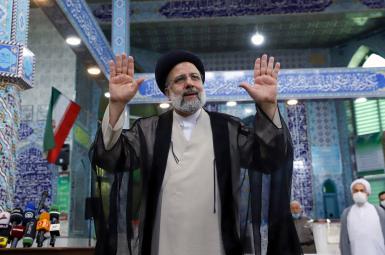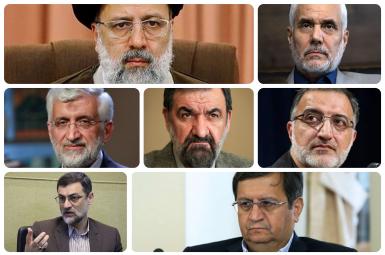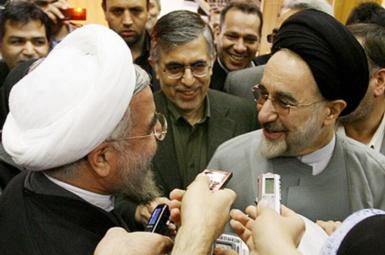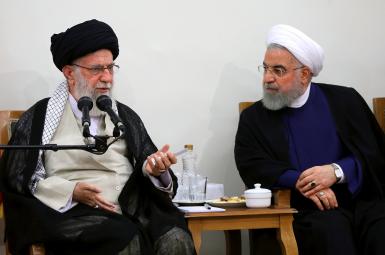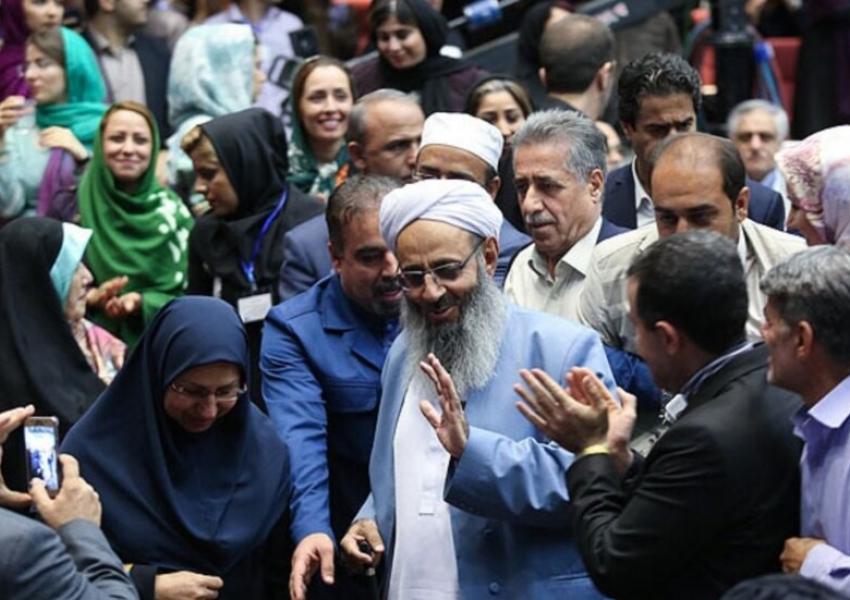
Senior Sunni Cleric Slams Candidate-Vetting In Iran Elections
Molana Abdolhamid Esmail-Zehi, Sunni Friday prayer leader of Zahedan, provincial capital of Sistan-Baluchestan, Thursday lambasted discrimination against Sunni Muslims and criticized heavy-handed vetting of candidates for the local council and presidential elections due on June 18.
In his sermon for the Eid al-Fitr holiday, Molana Abdolhamid suggested the screening favored some political groups, presumably the principlists. Esmail-Zehi has generally supported reformist or centrist candidates in presidential elections given their expressed support for rights for ethnic and religious minorities, and has helped encourage a generally high voting turnout in Sistan-Baluchestan, which is Iran’s second largest province and has a majority both of Sunnis and ethnic Baluchis.
"Prudent Iranians do not approve of these extensive disqualifications,” Molana Abdolhamid said. “Let's not make the elections factional and allow individuals with different views and interests compete in the presidential elections…Let's give people freedom to choose whichever faction they want."
Turnout in the upcoming elections across Iran is expected to be lower than previous elections due to both the Covid-19 pandemic and disillusionment after three years of economic recession. Such factors are compounded among Sunnis, between 5 and 10 percent of Iran’s population, by grievances over unfair treatment. In Sistan-Balchestan, Baluchis have long felt Persian-speaking Sistanis are given preference in government employment.
"You expect the Sunni community to participate in the elections even more eagerly than Shiite brothers,” Molana Abdolhamid said. “But you must first stop discriminations against Sunnis… Only then you can expect us to participate in the elections ahead of our Shiite brothers.”
Iran's hardliners are seeking to engineer the local council elections, which are the only polls not supervised by the watchdog Guardian Council but by local branches of the police, the Intelligence and Interior ministries. Political groups have complained that in addition to all these Revolutionary Guards (IRGC) intelligence is indirectly involved in vetting candidates, with thousands of would-be candidates across the country barred from running, including ten out of 12 sitting councilors in Tehran who had registered to run again.
"All Iranians are equal before the law,” said Molana Abdolhamid. “The constitution excludes only the election of the president [who has to be Shiite] and there is no such exclusion or limitation in the constitution about ministers, vice-presidents and those in decision-making centers. Yet Sunnis are not present in any decision-making body apart from a few in the parliament.” The cleric attributed this to the "pressure of the hardliners."
Pointing to poverty, unemployment and corruption, Molana Abdolhamid said discontent had grown in recent years among the majority Shiites as well as Sunnis. In February wide unrest and riots engulfed several cities of Sistan-Baluchestan after security forces allegedly shot Baluchi ‘fuel mules’ at a border crossing with Pakistan near the city of Saravan.
Molana Abdolhamid said Thursday that Rouhani had failed to deliver on promises made when elected in 2013 to extend opportunities for Iran’s ethnic and Sunni minorities. In 2013 Rouhani won 51 percent of votes across Iran but 75 percent in Sistan-Baluchestan and 71 percent in Kurdistan province, which has a majority of ethnic Kurds and of Sunnis.

